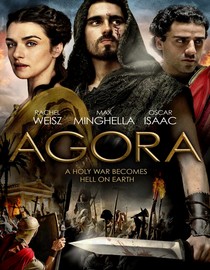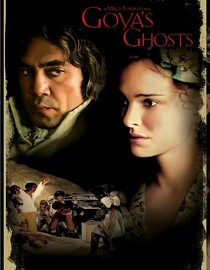 BFF Kay and I went to see The Help yesterday, and I can tell you one thing for sure: do not leave home without a box of Kleenex. Another thing, as with all movies: you need to suspend a little disbelief.
BFF Kay and I went to see The Help yesterday, and I can tell you one thing for sure: do not leave home without a box of Kleenex. Another thing, as with all movies: you need to suspend a little disbelief.
This engaging, “you go, girl!” story takes place in Jackson, Mississippi, during the very beginnings of the Civil Rights Movement. It was the norm for wealthy white folk to have black maids who not only cooked and cleaned, but nannied (and in many cases, actually reared) their children — children who spent their childhood years loving and growing quite attached to the maids, but who grew up to treat the women like slaves.
The script was harsh at times. You can’t have a period film about racism and that not be the case. Yet, as I think back on the movie, there were A) attempts to downplay what likely took place back then, and B) overblown stereotypes, designed to sway the audience. I know, that sounds overgeneralized. Here are some for instances:
- The Klan was mentioned only once (almost whispered), and never portrayed. And we’re talking Mississippi here, people –– the epicenter of racial violence in the early 60s.
- Abilene, the maid (played brilliantly by Viola Davis — you will no doubt hear her name when Oscar nominations come out) lives alone in the outskirt slums of Jackson, but owns what one would consider a lower middle-class home — simple, but clean and almost roomy — complete with running water, modern appliances, and a telephone. That just seemed “off” to me.
- Hilly Holbrook (played by Bryce Dallas Howard), the film’s snooty antagonist, is so mean, it’s hard to take her seriously as a contributing character. She’s more like sick comic relief, particularly when she receives some tasty revenge from a maid. She never struck me as a real character so much as a well-acted caricature.
However, there’s a bright side, and it’s a big one.
The performances by the primary and secondary leads were a delight. No one misfired or failed to deliver. With the highest of highs and rock-bottom lows, this film rates 100% on the emotion scale. Kay and I were both alternately giggling like teenagers or bawling like fools. Some mother-daughter scenes between lead character Skeeter and her mom, played nicely by Allison Janney, hit particularly close to home. Oh, and it was great to see Cicely Tyson on film again.
There is no doubt that this is a woman’s empowerment movie. There’s not a single male lead (and it was fun to see Lafayette from True Blood playing a nice guy!). Many times, films with heavy female dominance tend to stick it to men. Not this one. Women are the heroes and the villains in this story, and all are played well, if not a bit over the top. A bit. The story is a smidgen slow in places (almost two and a half hours runtime), but totally satisfying. The writers and actors did their jobs: we both bawled on cue. ![]()
Oh, and a confession: During a scene where Skeeter sits at a typewriter and corrects a mistake, I leaned over to Kay and said, “No way they had Liquid Paper back in 1964.” Thought I caught them in an anachronism. Alas, I was wrong.
Still, it was a fantastic story, well acted. It was easy to cheer at the end — and you don’t hear people applauding at the end of a movie very often anymore. That was nice, too. Go see it.
On the Rat-O-Meter scale of five cheeses, I give The Help:


 Of the 40 movies that won Best Picture at the Oscars since 1970, I have seen all but five. I decided a few weeks ago to view them before going to work on the previous 40 years. Last night, the list dropped to four when I watched Crash (2004).
Of the 40 movies that won Best Picture at the Oscars since 1970, I have seen all but five. I decided a few weeks ago to view them before going to work on the previous 40 years. Last night, the list dropped to four when I watched Crash (2004).
 Ever since The King’s Speech, I’ve wanted to get my eyeballs on movies with Colin Firth. I saw a dandy two nights ago.
Ever since The King’s Speech, I’ve wanted to get my eyeballs on movies with Colin Firth. I saw a dandy two nights ago. After a really busy Saturday, I collapsed on the sofa and fired up Netflix at 9 p.m., ready to fall asleep to something mundane. Instead, I found Agora from 2009 — a film I’d never heard of, about an Egyptian philosopher I’d never heard of. The most interesting part: she was a she.
After a really busy Saturday, I collapsed on the sofa and fired up Netflix at 9 p.m., ready to fall asleep to something mundane. Instead, I found Agora from 2009 — a film I’d never heard of, about an Egyptian philosopher I’d never heard of. The most interesting part: she was a she.
 Is it possible to love and hate a movie at the same time? I think a proper summary of Goya’s Ghosts would be that I enjoyed the watching, but hated that I didn’t much care about any of the people in it.
Is it possible to love and hate a movie at the same time? I think a proper summary of Goya’s Ghosts would be that I enjoyed the watching, but hated that I didn’t much care about any of the people in it.